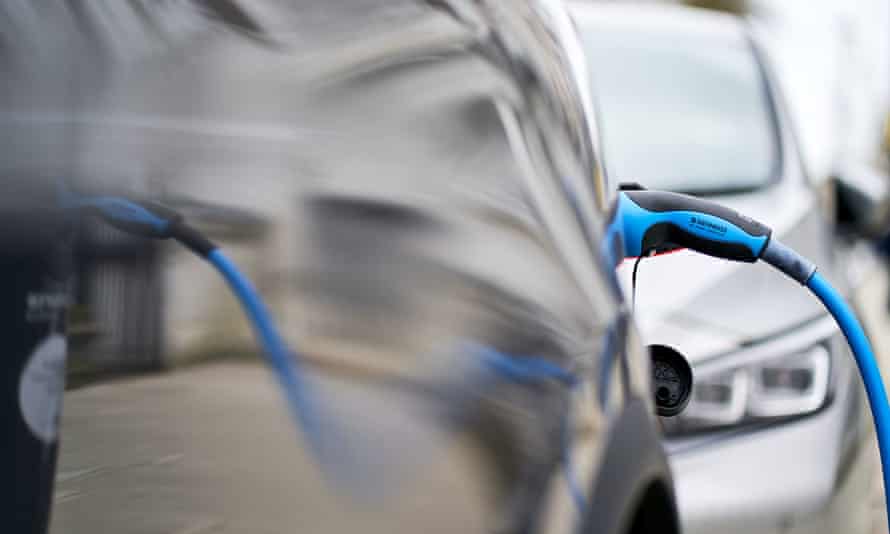Extract from The Guardian
ALP wants to reduce the cost of electric cars and increase their uptake as fleet vehicles across Australia

Last modified on Wed 31 Mar 2021 04.21 AEDT
Labor will cut the import tariff on electric vehicles worth less than $77,565 and exempt them from fringe benefits tax in an effort to reduce retail prices and create incentives to drive up fleet purchases.
The new policy will be unveiled at the party’s national conference on Wednesday as power brokers continue to wrestle over amendments from the Australian Workers Union and the Construction, Forestry, Mining and Energy Union intended to strengthen Labor’s support for new gas projects.
As officials attempt to land a deal on gas to prevent a show of defiance on the conference floor, the federal leader, Anthony Albanese, and the shadow climate change minister, Chris Bowen, will unveil their first post-election policy commitment to encourage the take-up of electric cars, and a separate $200m program to install 400 community batteries to serve up to 100,000 households.
Community batteries allow people in high rises or rental properties who can’t install their own solar systems to draw from excess energy stored in a battery serving a local neighbourhood.
The new commitments on electric vehicles are the first time Labor has returned to the policy fray since the Morrison government, during the 2019 election, characterised the party’s measures – which included a national electric vehicles target of 50% new car sales by 2030 and pollution regulation on car retailers “in line with” 105g CO2/km for light vehicles – as a “war on the weekend”.
The hyperbolic rhetoric deployed by the prime minister, Scott Morrison, and the energy minister, Angus Taylor, in 2019 was part of the Coalition’s efforts to weaponise climate action.
The tax changes will cost around $200m in lost revenue over three years and apply to vehicles priced below the luxury car tax threshold for fuel-efficient vehicles. It is unclear whether or not Labor will persist with the measures it flagged before the last election, but senior figures say Wednesday’s EV policy is a first instalment rather than the final word.
The first day of the national conference saw delegates agree to recognise Palestinian statehood “as a priority” and also settle the party platform wording for other foreign affairs and trade issues.
Labor’s climate and energy policies will be debated on Wednesday. Gas has become a focal point in an internal fight about whether or not climate ambition has cost Labor election victories – a fight that reached a crescendo with the departure of the New South Wales rightwinger Joel Fitzgibbon from the shadow ministry, and the replacement of Labor’s former climate spokesman, Mark Butler, with Bowen.
Albanese meanwhile used a speech to delegates on Tuesday night to rally the party faithful. The Labor leader said Morrison led “a government that is out of ideas, out of touch, and at the next election they should be out of office”.
“Over the last two weeks, what we used to call once-in-a-century floods have drowned much of our east coast,” Albanese said.
“They come in the wake of an unprecedented fire season that scorched much of our continent. And in the nation’s capital and beyond, women are making a brave stand against a toxic culture that has held them back and endangered them for so long,” he said.
“What these challenges have in common is a government in denial about how quickly our world is changing – in denial about the science of climate change, in denial about women’s truth”.
Albanese said if Labor won the next federal election, he would offer “sound, considered, honest government” and lead a government that “faces up to reality, listens to what people are saying, accepts expert advice, has genuine empathy for people’s concerns [and] backs the aspirations of all Australian families for a better life”.
With the Covid-19 pandemic unleashing a debate in Australia and around the world about sovereign capability, Albanese said a Labor government would back industries of strategic importance, which he nominated as mining and resources; agriculture, forestry and fishing; medical science; renewables and low emission technologies; defence industries; and transportation.
Albanese told delegates the choice voters would face at the next election was “becoming clearer by the day”.
He said the contest would be between “a tired government that been in power for eight long years that’s unravelling before our eyes, led by a man who is an empathy vacuum and an accountability black hole” – and a Labor alternative promoting a strong, inclusive and confident country.
No comments:
Post a Comment